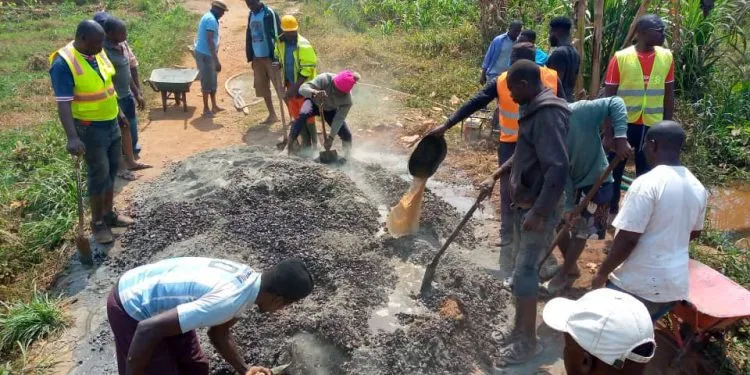The government and the private sector in Cameroon are unanimous that for over three years, the socio-economic, cultural, and political activities have been affected in the North West and South West Regions due to the respect of Monday traditional ghost town imposed by separatist fighters.
Since 2017, Mondays have been observed as ghost town days. All businesses are closed and people stay in their houses. Defaulters of the routine face the wrath of armed separatists.
In the past months, inhabitants of Mulang, a neighborhood in Mankon, Bamenda II Subdivision in Cameroon’s troubled North West Region are using Mondays to improve on the face of the quarter. They have constructed a bridge over a stream.
According to Ndeh George, Quarter Head of Mulang, inhabitants voluntarily offered their service to realize the project.
“The bridge is worth four million francs but we have spent very little in terms of money. People offered their know-how to ensure that the bridge is constructed to serve the community, ” said Ndeh.
“Children and even adults used to fall into the water when just two sticks were placed across the stream. We couldn’t sit waiting on the government to come and do this. So men, women, youths, and children mobilized for the construction,” said Abanda Philomena, an inhabitant of the quarter.
Besides constructing the bridge to ease the movement of people from Street II Mulang to Street V Mulang, the inhabitants of Mulang have also constructed a water catchment, two classrooms, an office among other projects earmarked for the days ahead.
As the war for the restoration of the state of Ambazonia drags on, people living in the North West and South West Regions have designed diverse ways of profitably spending Monday ghost towns while waiting on competent authorities to seek lasting peace.
Mbatho Ntan.



